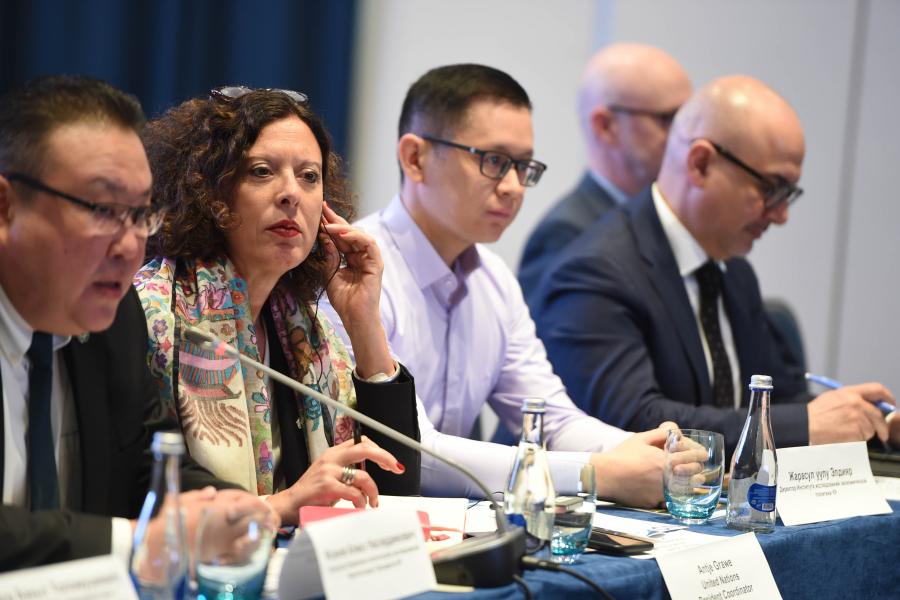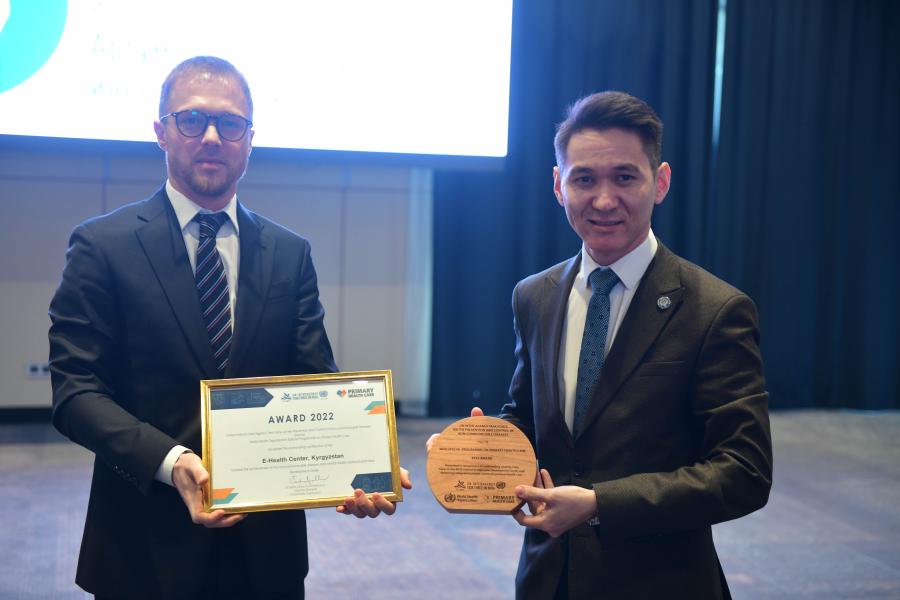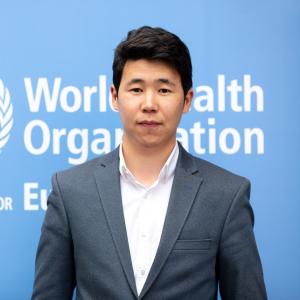Combatting NCDs and promoting mental health: strong partnership is key
17 март 2023
Combatting noncommunicable diseases (NCDs) and investing in mental health were high on the agenda at a policy dialogue event in Bishkek, Kyrgyzstan. The multistakeholder event was organized as part of a visit to Kyrgyzstan by the United Nations Interagency Task Force on the Prevention and Control of NCDs (UNIATF). Participants agreed on a strong partnership to assist Kyrgyzstan in quantifying the costs of NCDs and the benefits of scaled-up action for their prevention and control, both in the health sector and the economy at large.

A collaboration of WHO and the United Nations Development Programme (UNDP), the visit aimed to collect intersectoral data and evidence to link NCDs and mental health to national development goals in line with the Sustainable Development Goals. A report to be launched in Bishkek later this year will empower decision-makers from government and ministries to make compelling, evidence-informed cases to advocate for NCD investment, understand funding priorities and reconsider budget allocations in the future.
The event brought together high-level policy-makers from the Office of the President, the Parliament, various ministries, the United Nations Resident Coordinator Office in Kyrgyzstan, development agencies, health institutes and civil society organizations, as well as WHO experts and national health professionals.
Economic analysis of the NCD epidemic
In 2017, WHO in collaboration with UNIATF and UNDP analysed the economic burden of NCDs as well as the costs and benefits of investing in NCD prevention and control in Kyrgyzstan. The report detailed how NCDs cause almost 4% of the country’s gross domestic product to be lost each year – equivalent to US$ 250 million – and how premature death, illness and disability from NCDs impact Kyrgyzstan’s socioeconomic development.
They found that the reduced cost of a healthier population will outweigh the investment needed to lower the prevalence of NCDs by 12 times. NCDs such as cancer, cardiovascular diseases, diabetes and chronic respiratory diseases, and their risk factors (tobacco use, harmful use of alcohol, unhealthy diet and physical inactivity), are responsible for 80% of all deaths in the country. Most worryingly, there is a 28% probability of dying prematurely (between the ages of 30 and 70 years) from NCDs in Kyrgyzstan.
“Kyrgyzstan, like the rest of the world, confronts an epidemic of NCDs that is having serious economic and public health impacts and it is not acceptable. I hope that the recommendations and decisions made as a result of today's high-level policy dialogue will help us solve this big problem with NCDs,” said Dr Shahin Huseynov, WHO Special Representative of the WHO Regional Director in Kyrgyzstan.
Digital health award for Kyrgyzstan
The E-Health Centre under the Ministry of Health officially received the UNIATF and WHO Special Programme on Primary Health Care award for scaling up digital health in primary care, with a particular emphasis on the prevention and control of NCDs.
Winners were announced on 21 September 2022 at the annual Friends of the Task Force meeting during the United Nations General Assembly. Awards were made in 3 categories: ministries of health (or government agency under a ministry of health); ministries (or government agencies) beyond health; and non-State actors (nongovernmental organizations, academic institutions and philanthropic foundations).
“I believe this award will be a symbol of hard work and motivation for the team to become more efficient and carry out the further digital transformation of the e-health industry,” noted Dr Bakyt Dzhangaziev, Deputy Minister of Health.

Background
UNIATF was established by the United Nations Secretary-General in 2013. NCDs, also known as chronic diseases, include cardiovascular diseases, cancers, chronic respiratory diseases and diabetes. UNIATF’s role is to bring relevant actors from across the United Nations system and national governments together to develop whole-of-government, whole-of-society approaches for the prevention and control of NCDs.
The work of UNIATF includes implementing the Global Joint Programme on NCDs to conduct investment cases, coordinate interagency joint programmes and facilitate thematic working groups. WHO acts as a Secretariat for the Task Force.








